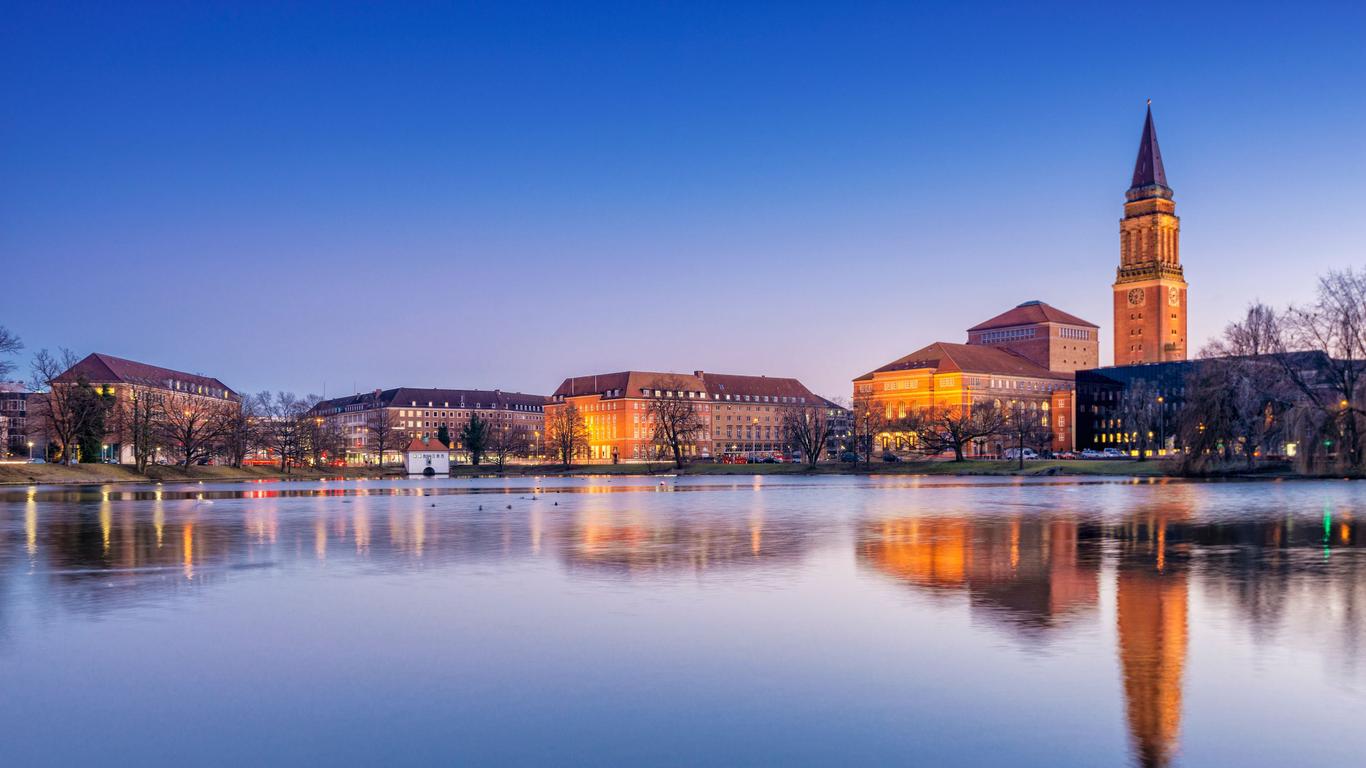The maritime city of Kiel lies 90 kilometres north of Hamburg, in the state of Schleswig-Holstein, Germany. The city is known for its International sailing events and is the centre of the country’s shipbuilding industry. Kiel Harbour is an important port for cruise ships touring the Baltic Sea and for passenger ferries bound for Norway, Sweden and Russia. Kiel offers visitors an insight into Germany’s rich maritime history with a variety of monuments, museums and waterfront buildings to explore.
The city’s most popular attractions are the U-Boat Base and U995 location at Ostsee Beach. Visitors can access one of the most important submarines and learn about the part it played during World War II. Explore the bunks where the crew would sleep, the complex engine room and see torpedo’s ready to be loaded. A pleasant afternoon can be spent strolling through Old Botanical Garden in Kiel. Woodland glades, ponds and pretty bridges lead visitors to over 280 species of diverse flora and trees. It’s a wonderful place to relax with a picnic on a summer’s day with family and friends. Architectural gems in the city include Kiel Rathaus Paternoster and St. Nikolai Church which was a former monastery. Holstenstrasse is one of the oldest streets in the city, forming the original north-south route to and from Kiel. The street is a bustling shopping district with high-street chains, cafes and restaurants to enjoy. Visitors wishing to explore German medieval history and architecture should head to the fairy tale city of Lübeck just over an hour away.
The city of Kiel can be reached from Hamburg International airport by transfer bus. The journey time is 90 minutes. Once in the city, it’s easy to navigate, as Kiel has a good public transport system with buses and ferries operating regularly. The city is also ideal for cycling, as it’s flat and easy to ride from one area to another.
Kiel was a member of the Hanseatic League, and in 1431 the trade fair was first held in the city. As the city’s maritime trade increased in size, so did the city. It was the site of a sailors’ mutiny, thus, sparking the German Revolution at the end of World War I. Kiel played an integral part in the Second World War as one of the country’s main naval bases and submarine sites. The area was attacked heavily by the Allies destroying much of the historic old town. Today, Kiel remains an important maritime city in Germany, and with such a rich history, visitors travel from all over the world to discover more.





